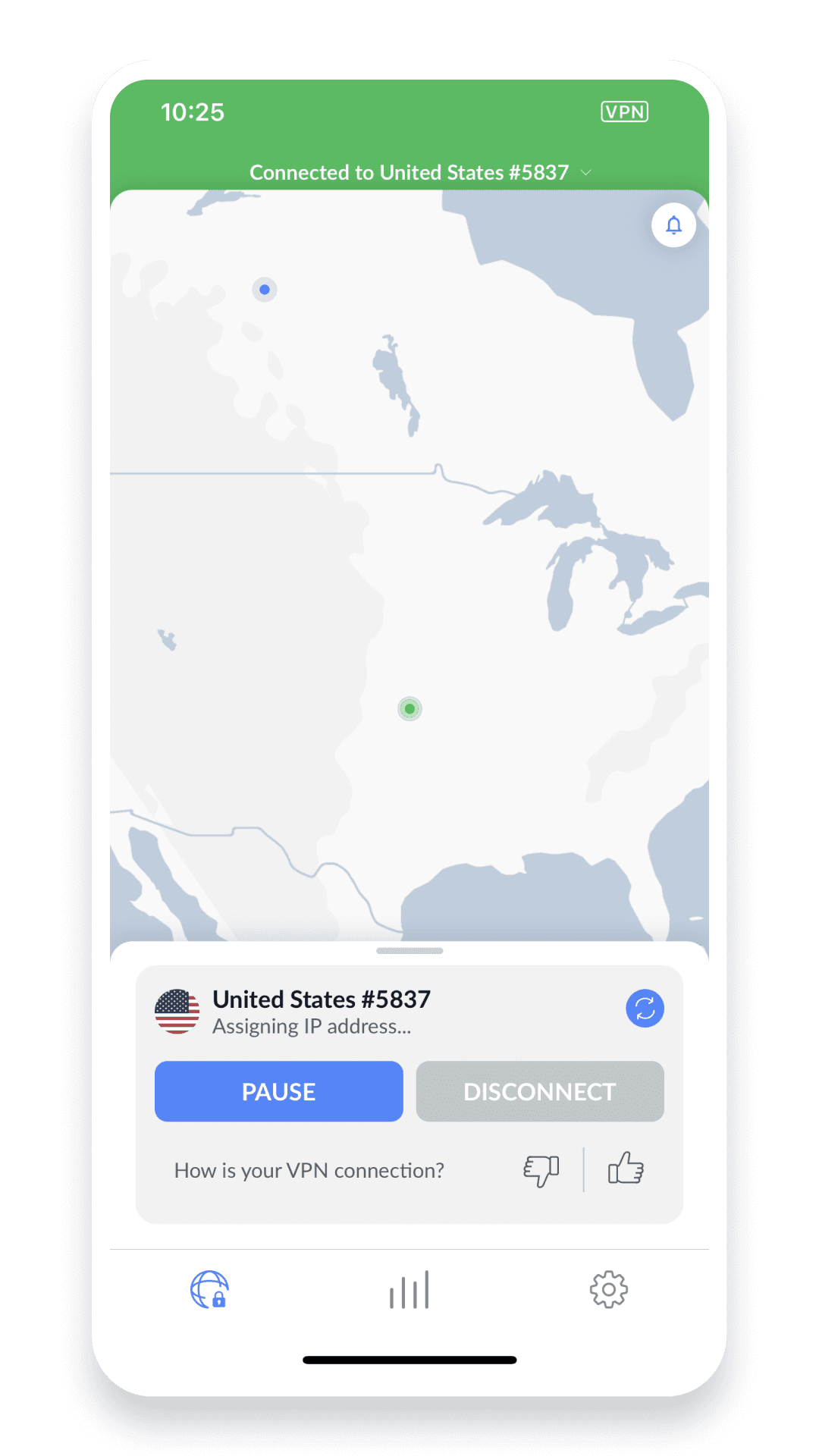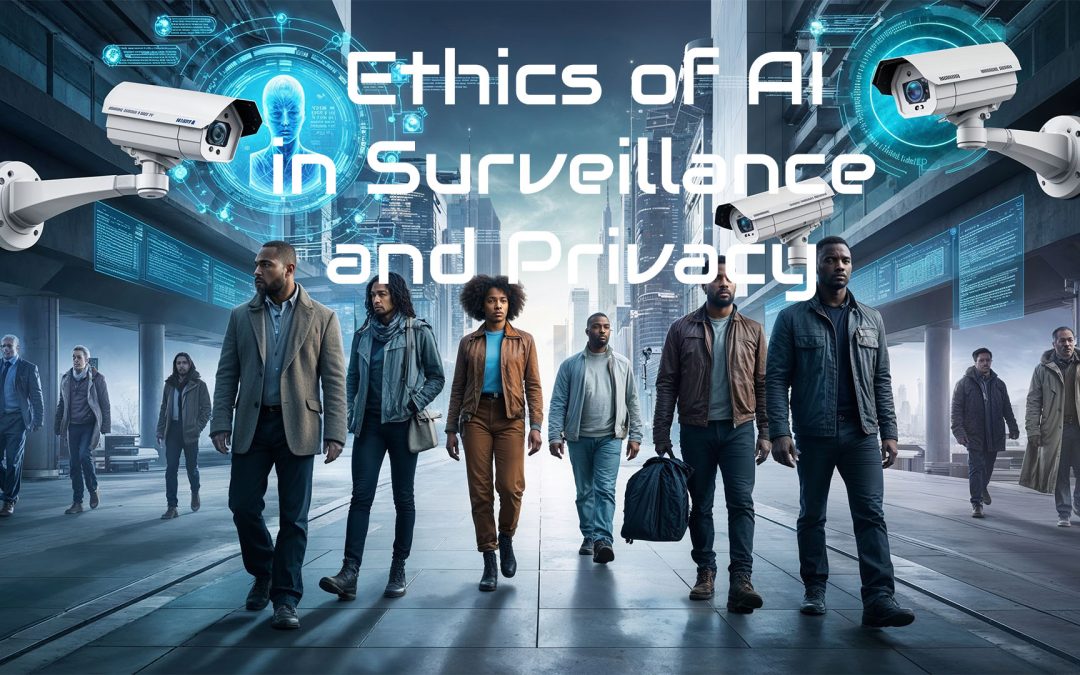Introduction – Ethics of AI in Surveillance and Privacy
Table of Contents
- 1 Introduction – Ethics of AI in Surveillance and Privacy
- 2 ❓ FAQs about Ethics of AI in Surveillance and Privacy
- 3 Summary and Conclusion – Ethics of AI in Surveillance and Privacy
- 4 Resources – Ethics of AI in Surveillance and Privacy
Artificial Intelligence (AI) has revolutionized numerous sectors, with surveillance and privacy being among the most impacted.
While AI-powered surveillance promises increased security and efficiency, it raises profound ethical questions about privacy, consent, and fairness.
In this article, we explore the ethical considerations surrounding AI in surveillance and privacy, delving into its societal implications and offering actionable solutions to balance security and individual rights.
This article complements the previous one, Cybersecurity in AI-Based Workflows: Unstoppable Deep Dive in 2024?.
1. The Role of AI in Modern Surveillance:
AI enhances surveillance by analyzing vast datasets quickly, recognizing patterns, and making predictions.
From facial recognition to predictive policing, AI tools are employed to prevent crimes, track individuals, and manage crowds.
However, this technological advancement comes with risks: biases in algorithms, wrongful accusations, and potential misuse by authoritarian regimes.
Key Use Cases:
- Facial Recognition: Used in airports, public spaces, and even retail.
- Predictive Policing: AI predicts areas or individuals likely to commit crimes.
- Behavioral Analysis: Monitors activities in real-time, flagging potential threats.
2. Privacy Concerns and Ethical Dilemmas:
AI surveillance operates at the intersection of security and privacy. This balance often tilts toward excessive surveillance, eroding personal freedoms.
Ethical Questions:
- Informed Consent: Are individuals aware they are being monitored?
- Data Security: How is collected data stored and protected?
- Transparency: Are governments and corporations open about their surveillance practices?
Real-World Examples:
- China’s Social Credit System: An AI-driven initiative that monitors and evaluates citizen behavior.
- Clearview AI: A company criticized for scraping billions of photos for facial recognition.
3. Biases in AI Systems:
AI systems are only as unbiased as the data they are trained on. Surveillance algorithms often amplify societal prejudices, disproportionately targeting marginalized communities.
Challenges:
- Racial Bias: AI systems misidentify minorities more frequently.
- Gender Disparity: Women and non-binary individuals face inaccuracies in recognition technologies.
Solutions:
- Regular audits for bias detection.
- Training models on diverse datasets.
4. The Psychological Impact of AI Surveillance:
Constant monitoring alters human behavior, leading to stress, anxiety, and loss of autonomy.
Surveillance can create a “chilling effect,” where individuals self-censor out of fear of being watched.
Societal Impact:
- Reduced freedom of expression.
- Widespread mistrust of authorities.
5. Legal and Regulatory Frameworks:
Ethical AI in surveillance requires robust legal safeguards. Current frameworks often lag behind technological advancements, leaving loopholes for exploitation.
Key Areas for Regulation:
- Data Privacy Laws: GDPR and CCPA set benchmarks.
- Algorithmic Accountability: Developers must be held responsible for biases.
- Global Cooperation: Standardized international guidelines for AI use in surveillance.
In a world of growing AI surveillance, tools like NordVPN offer essential protection by encrypting your internet traffic and masking your online activity.
This reliable VPN solution protects your privacy and protects you from prying eyes.
6. The Role of Corporations and Governments:
Governments and private companies must prioritize ethical considerations over profits or control. Collaboration with independent watchdog organizations can ensure accountability.
Recommendations:
- Transparency reports on AI usage.
- Partnerships with ethics boards.
- Public consultations on surveillance projects.
7. Future Outlook:
The future of AI in surveillance depends on proactive ethical practices. Innovations like decentralized AI and blockchain-based data security can minimize risks.
Balancing Act:
- Leveraging AI for safety without compromising privacy.
- Encouraging innovation with ethical boundaries.
❓ FAQs about Ethics of AI in Surveillance and Privacy
1. What is AI surveillance?
AI surveillance uses artificial intelligence technologies like facial recognition, behavior analysis, and data monitoring to track, predict, or manage human activities.
2. Why is AI in surveillance controversial?
AI in surveillance is controversial due to concerns about privacy invasion, lack of transparency, and potential misuse by governments or corporations.
3. What are the ethical concerns with AI in surveillance?
Key concerns include biases in algorithms, lack of consent, potential abuse of power, and psychological impacts like fear and anxiety.
4. Can AI surveillance be unbiased?
AI surveillance can minimize biases with diverse training datasets and regular audits, but achieving complete neutrality remains challenging.
5. What laws govern AI surveillance?
Laws like GDPR in Europe and CCPA in California regulate data privacy. However, many regions lack specific regulations for AI surveillance.
6. How does AI surveillance impact businesses?
Businesses use AI surveillance to enhance security, but overusing it can harm employee trust and lead to legal challenges.
7. How can individuals protect their privacy from AI surveillance?
Using encryption, VPNs, and privacy-focused tools can help. Advocating for stronger legal protections is also vital.
8. What technologies complement AI in surveillance?
Technologies like IoT, edge computing, and blockchain complement AI by enhancing data collection, processing, and security.
9. Is AI surveillance effective in reducing crime?
AI surveillance can help deter crime and improve response times, but its effectiveness depends on ethical implementation and oversight.
10. What is the future of AI in surveillance?
The future likely includes decentralized AI, better privacy safeguards, and global regulations to balance innovation with ethical concerns.
Summary and Conclusion – Ethics of AI in Surveillance and Privacy
AI in surveillance offers unparalleled advancements in security but raises critical ethical challenges. Issues like bias, privacy violations, and lack of transparency have sparked debates about its responsible use.
Governments and corporations are pivotal in ensuring ethical AI practices through robust legal frameworks, algorithmic audits, and public accountability.
Innovations like decentralized AI and privacy-focused tools promise a future where security and privacy can coexist.
While AI in surveillance has the potential to deter crime and enhance efficiency, it must be implemented carefully to avoid undermining individual freedoms.
By addressing these ethical dilemmas head-on, society can ensure AI serves as a tool for good, safeguarding both safety and fundamental rights.
The ethics of AI in surveillance and privacy are not just a technological issue; they’re a societal challenge.
We can harness AI’s potential responsibly by addressing biases, improving transparency, and implementing strict regulations.
Ethical AI is the key to ensuring that technology serves humanity without undermining its core values.
📚 Related Posts You May Be Interested In
- Cybersecurity in AI-Based Workflows: Unstoppable Deep Dive in 2024
Discover how AI-powered workflows impact data protection and threat mitigation in critical infrastructures. - ChatGPT vs Bing AI: Which Assistant is More Ethical and Accurate?
Explore how ethical constraints and bias detection differ across popular AI chat assistants. - Leonardo Integrates Veo 3: The AI Video Revolution Just Got Real
See how video AI tools like Leonardo reshape visual storytelling while raising new privacy and copyright concerns. - Blockchain: Revolutionizing Supply Chains and Finance
Understand how blockchain technology enables decentralized, tamper-proof systems that could enhance ethical AI implementations. - AI Toosl Comparison Series ⬈
The AI tools comparison series is your go-to hub for understanding the dynamic world of artificial intelligence assistants and platforms.
This article is part of the Definitive Guide to Brilliant Emerging Technologies in the 21st Century ⬈.
Thanks for reading.
Resources – Ethics of AI in Surveillance and Privacy
- AI Ethics in Surveillance: A Deep Dive
This article discusses various ethical issues related to AI surveillance, including the risks of privacy invasion, lack of consent, and the psychological impact of constant monitoring on individuals. It also touches on global disparities in surveillance practices and how AI might affect vulnerable populations. Read more here: Digital Defynd ⬈. - AI and Privacy in Surveillance Systems
This resource explores how AI surveillance systems challenge privacy, emphasizing issues like transparency, accountability, and potential biases. It advocates for better regulatory frameworks to ensure ethical AI deployment, with examples from global regions like the EU and the U.S. For further details, visit: Digital Trends ⬈.
How can you safely connect any device anywhere in the world? Try NordVPN!

ℹ️ Note: Due to the ongoing development of applications and websites, the actual appearance of the websites shown may differ from the images displayed here.
The cover image was created using Leonardo AI.

